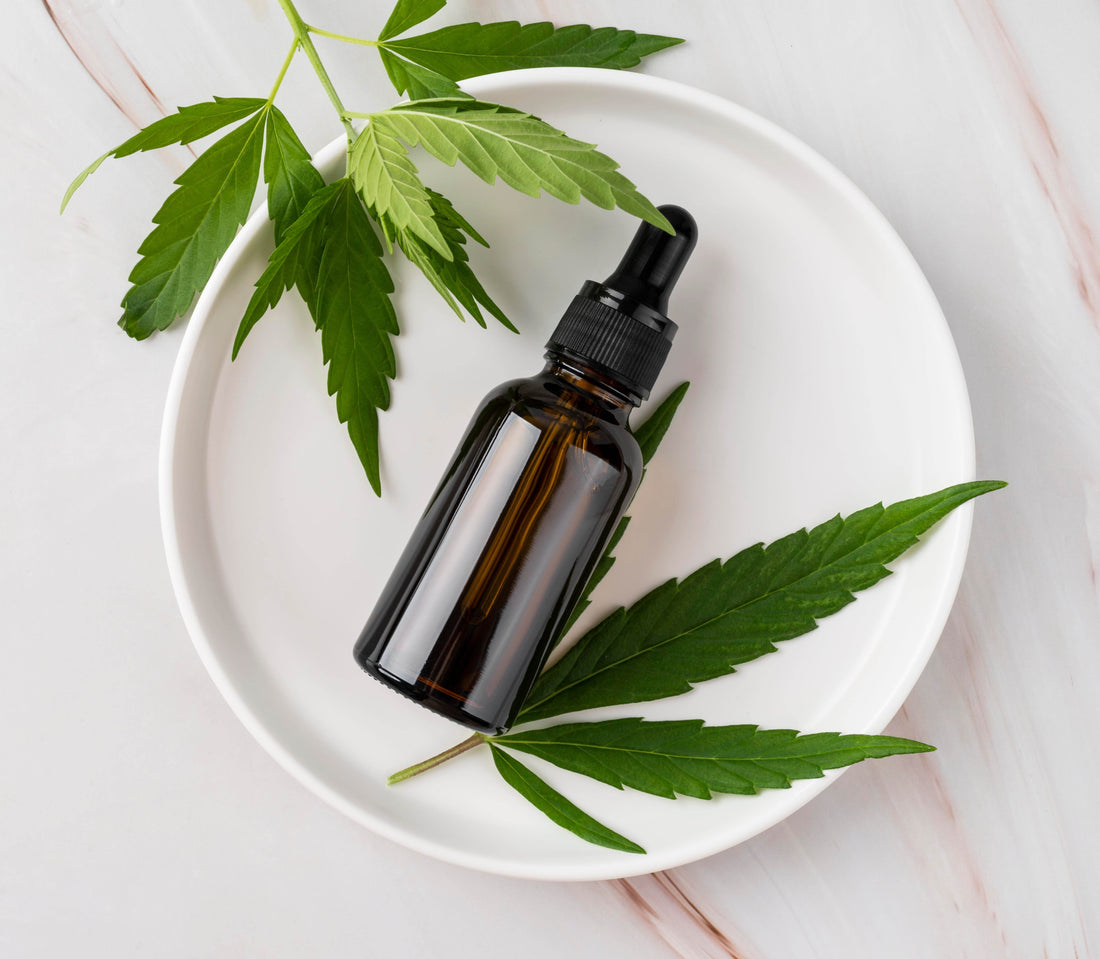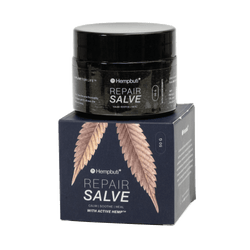CBD Oil Is Legal in India — But Under These Conditions
Wondering if CBD oil is legal in India? It is — but only under specific laws. Learn what’s allowed, what’s not, and how to use CBD legally in 2025.
Confused about whether CBD oil is legal in India? You’re not alone. The answer is yes—but with a bunch of rules you really need to know. Thanks to the NDPS Act and the Drugs and Cosmetics Act, not all CBD products are treated equally.
n fact, only hemp-derived CBD with low THC levels is permitted for medicinal purposes, and it often requires a doctor’s prescription.
Still unsure? You’re in good company—searches for “CBD oil legal in India” have surged by over 300% in the past two years (source: Google Trends).
Let’s break down what’s legal—and what could get you fined.
Is CBD Oil Legal in India?
Yes, CBD oil is legal in India, but only under strict rules. It must be extracted from hemp, not the cannabis plant. Plus, the THC content must be less than 0.3%. That’s the psychoactive stuff.
According to Ministry of AYUSH, only licensed products with proper medical supervision are permitted. Always check the label and seek advice from a registered medical practitioner. Additionally, CBD oil can only be manufactured under a license issued by the Drugs and Cosmetics Act of 1940.
Discover premium, high-quality CBD products that meet India’s legal standards. Shop now at Hempbuti.
Understanding the NDPS Act and India’s Cannabis Products Law
If you're wondering why CBD oil is legal in India, but still so hard to get—here’s why. It’s all about the NDPS Act (Narcotic Drugs and Psychotropic Substances Act, 1985).
This law controls narcotic drugs and psychotropic substances like THC, which is the part of the cannabis plant that makes you feel high. However, CBD oil extracted from the leaf of the cannabis plant is exempt from the NDPS Act, 1985.
But here’s the good news: CBD oil derived from hemp with very low THC content (less than 0.3%) is not banned. That means cannabis products like full spectrum CBD oil or cannabidiol oil can be used legally—but only for medicinal purposes.
The Drugs and Cosmetics Act also steps in here. It says that CBD must be made under medical guidelines, often labeled as a proprietary Ayurvedic medicine. You also need advice from a registered medical practitioner.
What the Drugs and Cosmetics Act Says About CBD
Many people ask, “If CBD oil is legal in India, then why is it not sold everywhere?” Great question. The answer lies in the Drugs and Cosmetics Act, 1940.
This law controls how cannabis products like CBD oil are made, sold, and used. Moreover, the legality of CBD oil varies across different states in India, which may have specific regulations regarding its sale.
CBD oil is only allowed if it is made for medicinal purposes. That means it has to be approved as a proprietary Ayurvedic medicine or similar product. It must be made under licensed labs with third party lab testing to ensure safety and low THC content.
Doctors can recommend it, but only if you have a real health need. You may need a doctor’s prescription or a consult with a registered medical practitioner. Using CBD without this may go against the law—even if you think it’s harmless.
Experts Say: “CBD products are permitted only under medical supervision and must meet specific manufacturing rules,” — Central Drugs Standard Control Organization (CDSCO), India.
THC Content and Legal Thresholds in India
How Much THC Is Allowed?
If you’re wondering why CBD oil is legal in India but still so tightly controlled, it mostly comes down to THC content. THC (short for tetrahydrocannabinol) is the compound in the cannabis plant that makes people feel high.
Under Indian law, especially the NDPS Act, CBD oil derived from hemp is allowed only if the THC levels are below 0.3%. Anything higher is treated like narcotic drugs. That means cannabis products with more THC can get you into legal trouble—even if they’re sold online.
Why THC Content Matters
The lower the THC content, the safer it is under Indian law. High-THC products fall under psychotropic substances or narcotic substances, and that’s where it gets risky.
So before you purchase CBD oil, always read the label, check the third party lab testing report, and confirm it meets the legal limit. If not, it could be illegal, even if marketed as safe.
Conditions That Qualify for Medical CBD Use in India
In India, the legal status depends on three things:
-
The source: It must be cbd oil derived from hemp, not the cannabis plant.
-
The THC levels: Must be below the legal limit.
-
The purpose: Only for health-related use under medical supervision.
Can You Use CBD Oil for Personal or Recreational Cannabis Use?
Short answer: No, you can’t. Using CBD oil just for fun or as a mood booster is not allowed under Indian law. This falls under recreational cannabis or recreational marijuana use, and it’s a big no-no.
Even if the oil is sold online or at stores, if it’s not made for medicinal purposes, it could contain more than the allowed THC levels. This might push it into the category of narcotic drugs, which are tightly controlled.
Also, using CBD just for personal use or without a real medical condition can get you into legal trouble. In fact, anything outside medical supervision may be considered illegal under Indian cannabis laws.
Your trusted source for hemp-derived CBD products. Visit Hempbuti for legally compliant oils you can rely on.”
Seek Advice Before You Start: Medical Supervision Matters
Before using cbd oil in India, talk to a registered medical practitioner or your local healthcare provider. Why? Because not all products are safe, and not every health problem needs CBD.
Here’s why medical supervision is critical:
-
Dosage needs to match your health condition.
-
CBD might interact with blood thinners or other medications.
-
You need to check if it’s approved under the cosmetics act or the drugs and cosmetics act.
Some people assume “natural” means safe. That’s not always true. Products without rigorous testing may not meet quality standards.
Always look for labels, licenses, and proof of third party lab testing.CBD oil might possess antioxidant and anti-inflammatory qualities that could enhance skin health by alleviating acne, eczema, and signs of aging.
Types of CBD Oil Products Available in India
1. Full Spectrum CBD Oil
This oil contains all parts of the cannabis plant, including small traces of THC, other cannabinoids, terpenes, and essential oils.
How does it help:
-
People say it offers the “entourage effect,” where all compounds work better together.
-
It is frequently utilized for alleviating pain, managing joint discomfort, and reducing stress. CBD oil may assist in pain relief by interacting with the body's endocannabinoid system, which plays a role in regulating how we perceive pain.
2. Broad Spectrum CBD Oil
This is similar to full spectrum but without THC. It still includes cannabinoids, cbd extracted from hemp, and plant oils.
-
Useful for people who want benefits without any risk of psychoactive effects.
-
Safe for those who may be drug tested or sensitive to THC. CBD oil is known for its potential anti-inflammatory properties, which could be beneficial for conditions such as arthritis and inflammatory skin issues.
-
Useful for people who want benefits without any risk of psychoactive effects.
-
Safe for those who may be drug tested or sensitive to THC.
3. CBD Isolate
This is pure cannabidiol oil—no THC, no plant parts, just CBD in its cleanest form.
-
Ideal for beginners or those with specific medical purposes.
-
Often used in low dosage for issues like inflammation, anxiety, and appropriate dosage trials. CBD oil may have neuroprotective properties, potentially offering benefits for conditions like epilepsy and neurodegenerative disorders.
-
Ideal for beginners or those with specific medical purposes.
-
Often used in low dosage for issues like inflammation, anxiety, and appropriate dosage trials.
Clarifying the Legal Status of CBD Oil Products
1. Imported vs. Locally Produced CBD Oils
-
CBD oils made in India must follow the Drugs and Cosmetics Act and use hemp from licensed sources. These products must have low THC levels (below 0.3%) and be meant for medical purposes only.
-
Imported oils, especially those from the U.S. or Europe, are more common. However, if they don’t follow India’s standards, they can be considered illegal. Customs often flags products with unclear THC content or without proper lab testing.
Experts Say: “Even CBD from reputable foreign brands must meet India’s standards to be cleared for personal use,” — FSSAI, 2023
2. Prescription Requirements
-
You can’t just walk into a store and buy CBD oil products like candy. In India, you must have a doctor's prescription or get guidance from a registered medical practitioner.
-
These products are classified as proprietary Ayurvedic medicine or wellness supplements, not recreational drugs. That means they must be prescribed for medical purposes like pain management, anxiety, or well being—not for getting high.
-
Some brands promote potential health benefits, but always consult a medical expert. CBD can interact with other medications like blood thinners and may not be safe for everyone.
3. Licensing & Regulations
CBD oil is regulated under multiple laws:
-
The Drugs and Cosmetics Act
-
The NDPS Act
-
Guidelines from the Excise Department and national policy
Oils made from cannabis leaves are typically restricted for recreational or non-medical purposes.
To legally sell CBD oil products in India, companies must:
-
Get proper licenses
-
Follow rigorous testing
-
Provide clear labeling
-
Show results of third party lab testing
How to Purchase CBD Oil in India Without Legal Trouble
1. Buy Only from Licensed Vendors: Make sure the brand or seller is registered under India’s AYUSH Ministry or approved by state drug authorities. Unlicensed products may be seized at customs or deemed illegal. BOHECO offers a wide selection of premium quality CBD oil products available for purchase online in Bengaluru.
2. Check for a Doctor’s Prescription: CBD oil is classified as a therapeutic product, not a general wellness supplement. A prescription adds legal protection during purchase and use, especially for full spectrum or higher-THC options.
3. Review Lab Reports Before Buying: Look for a Certificate of Analysis (COA) showing THC content, source of hemp (Indian vs. imported), and product purity. Products with over 0.3% THC may violate the NDPS Act.
4. Prefer Indian Hemp-Based Products: The Indian hemp industry is growing steadily, offering safer local alternatives that meet legal guidelines. Buying CBD oil made from locally grown hemp reduces customs-related risks. Indian laws allow hemp-based CBD if processed under licensed frameworks.
Looking for safe, licensed CBD oils? Explore Hempbuti’s range of compliant, locally made products today.
5. Avoid Buying from International Sites: Even if the product is legal abroad, importing without clearance can lead to seizure or penalties. Stick to Indian ecommerce platforms or local dispensaries.
6. Verify Product Labels and Claims: Ensure the product clearly lists THC content, ingredients, usage instructions, and legal disclaimers. Vague or missing labels are red flags.
7. Store Your Prescription and Invoice: Always keep a copy of your doctor’s prescription and purchase receipt. These can protect you in case of legal inquiry or travel-related checks.
CBD oil is legal in India, but only if you follow the rules. Stick to hemp-based products with low THC, get a doctor’s prescription, and buy only from licensed sources. Always check labels and lab reports. With the right steps, you can use CBD safely—and legally—in 2025.







